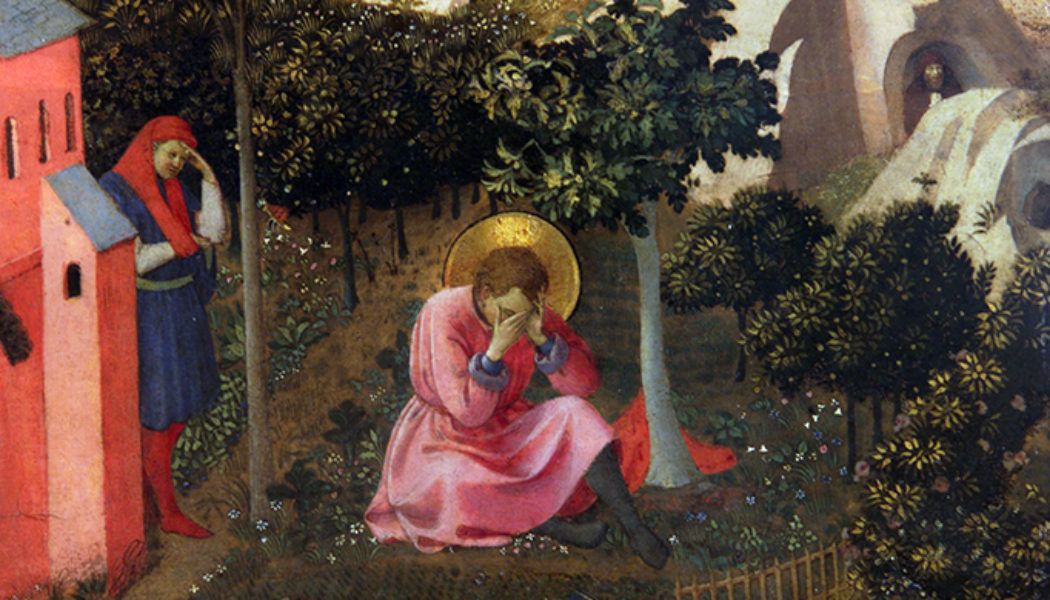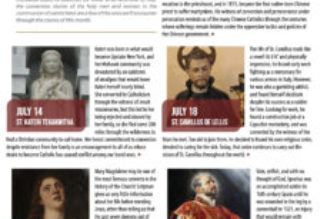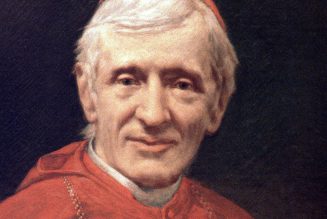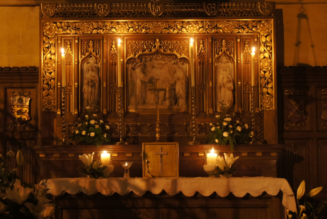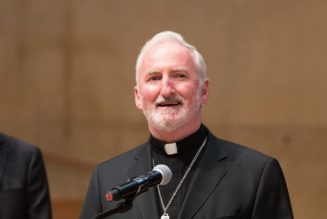
It was during the pontificate of Paul VI that a number of monks and scholars found themselves in Rome for a conference on the life of St. Augustine. Drawn by the timeless attractions of the Doctor of Grace, they came, fittingly enough, to the center of Catholic Christendom, the Eternal City, for learned and spirited exchanges concerning the greatest of the Church Fathers of the first millennium.
In the midst of their work they were received in a private audience by the Holy Father, who possessed more than a passing acquaintance with the mind and heart of Augustine. “Why are you here?” he asked. And when they told him, the Pope then asked, “How does one study the ocean?”
Indeed. How exactly does one study the ocean? Where does one begin? When faced with so vast and voluminous a legacy as the writings of St. Augustine, is it even advisable that one try? Who is erudite enough to set about measuring the immensity of St. Augustine, a man whose depths clearly defy one’s best efforts to plumb? An endless cave, as it were, which few have the capacity to go spelunking along in order to chart its source and course.
On the other hand, why not simply plunge in amid all that oceanic swell, diving headlong to the very bottom of that deep blue sea? Recurrent themes and ideas may pop up anywhere, certain words even becoming flash points. Words like desire, destiny, grace, gravitation, glory, joy, rest, union, beatitude. So many pieces fitted together to form a mosaic; or raise a scaffold to surround the life and thought of a singularly endowed human being.
And from that vantage point, there may perhaps be seen one great big thing that serves to unify all else, an organizing idea around which the words themselves coalesce. And what is that crystallizing point but the recognition that, for St. Augustine, not only are we as creatures both incomplete and unfulfilled without God, but that we remain entirely unreal to ourselves as well. Not to know God, therefore, is to collapse everything, including the self, into a state of sheer blithering unintelligibility. If the Socratic dictum is that I am to know myself, and that a life left unexamined is really not worth living, then for Augustine the abiding application of the point is when, having decided that it is God whom we wish to know, we will then come to the knowledge of ourselves as well. In short, self-scrutiny depends on training the eye entirely upon God, who is not to be confused with the self, but rather that horizon-shattering Presence who alone may account for all that anyone needs to know.
“Love is my gravitation,” Augustine tells us, “and where it goes I too must go.” We become the very thing that we love. Which, if it be God — who is himself love — then we become ever more like him. There is a word for this, by the way, and Augustine has seized upon it most wonderfully: Deification. It is a term pivotal to his presentation of the Christian life, which is a life not only centered on Christ, but steeped through and through with Christ. It is he, after all, to whom we are to cleave, for in doing so we may be transformed into the very likeness of God. The unforeseen outcome, Augustine would say, of God having first become one like us in order that we might then become one like him. “Let us thus rejoice and give thanks,” he urges, “for we have been made not Christians, but we have been made Christ.”
For who but Christ is able to show us the face of God? If we are, as the Psalmist reminds us in a text Augustine would often cite, “to seek his face evermore,” then it can only be the human being Jesus who reveals it to us. Jesus is not only an exegete, then, of the meaning of the Father who sent him, as though he were here to unpack a text or two, but the very enfleshment of God himself, in order that we might actually see God. Thus, he will tell us in his great treatise on the Trinity, “Let us enter together in the path of charity, in search of him of whom it is said, ‘Seek his face evermore.’”
Or this little missile, fired off in the middle of sermon, to remind us that the God whom we are to love, “is deep within the heart, but the heart has wandered away from him. Return, transgressor, to you heart. Hold fast to him who made you. Stand with him and you shall stand fast. Rest in him and you will be at rest.”
Here may be located the birth of what some (Maurice Blondel, for instance) have called “the method of immanence,” which is a way of doing theology that is not afraid to begin from within the human condition, which is one of hunger and thirst, of sheer boundless desire for God. What matters, then, is the testimony of an honest heart — “a hollowed-out space,” Augustine calls it — which only God can fill. In fact, on the very first page of his Confessions, a masterpiece of autobiography, in which a whole life is laid bare before God, Augustine provides a striking example of the method, to wit, the most frequently quoted passage in the book: “You have made us for yourself, O God, and so our hearts are restless until they find rest in you.”
There are, to be sure, many other passages equally arresting, but in order to find them one must first actually pick up Augustine and, as he himself was once urged to do, “take and read.” You will not be disappointed.
Join Our Telegram Group : Salvation & Prosperity
